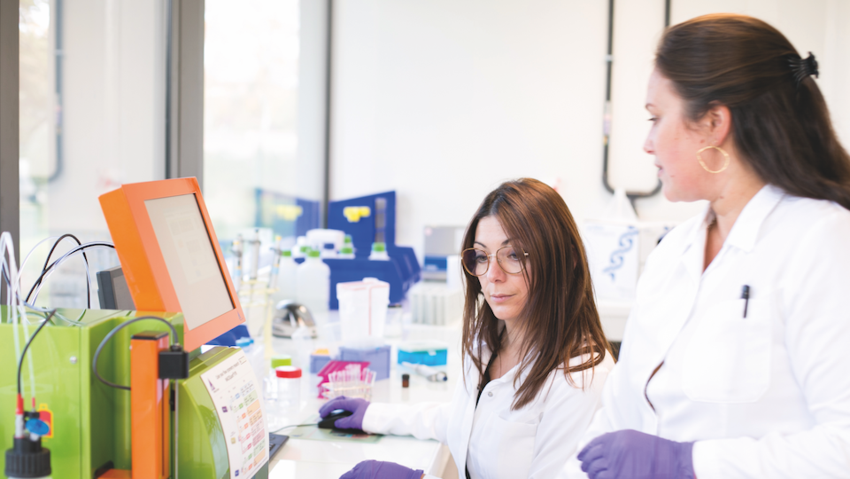TWB, an original model supporting the bioeconomy
With industrial biotechnologies as its core expertise and collaboration as its strategy for sustainable materials, TWB is celebrating its 10th year anniversary this year. Since its creation in 2012, TWB has been perfecting an original, unconventional model in the field of industrial biotechnology. Its secret weapon is collaboration through a flourishing public/private ecosystem that brings together all the stakeholders involved in the bioeconomy value chain. Leveraging this ecosystem, it has been successfully supporting the development of innovative solutions, among them: plastics degradation and regeneration, biocontrol solutions or adhesive biomaterials. Evolving in the dynamic French biotech field, which is strongly promoted by the government, TWB has managed to gather all the ingredients needed to become one of the major biotech actors globally.
Speedy public-private partnership
TWB covers a wide range of fields, from chemistry, materials and energy to agri/agro sectors, nutrition, and well-being. To accelerate R&D projects, TWB created in 2012 a public/private consortium, which accounts today for 51 members including 35 industry players (start-ups, SMEs, large corporations), 4 investment funds, 3 research and higher education national institutes, and local authorities. This consortium was designed to promote innovation and stimulate its incorporation into industry-ready solutions between entrepreneurs, laboratories and industrial companies, according to an easy-to-use contractual framework.
Since 2012, 285 R&D projects have been conducted by TWB and its partners and resulted in significant advances, both in the form of incremental industrial applications and disruptive technologies. For instance, TWB has been collaborating with Carbios SA on the end-of-life of plastics: Carbios’ process will be soon integrated into an industrial plant to process 50,000 tons of PET waste annually, or with Resicare (Michelin Affiliate) and Leaf to develop a new adhesive resin free of substances of very high concern. Thanks to its highly automated, cutting-edge facilities, along a continuum of knowledge from gene to product, TWB has been able to support the development of alternative, innovative and sustainable biological solutions.
Catalysing future innovators
It is in TWB’s DNA to foster innovation. In ten years, TWB invested €11m in more than 40 high-risk /high-reward projects, which fed ten product development pipelines and also triggered the creation of two start-ups. Nine start-ups have been hosted on its premises, among them: Pili, producing sustainable dyes and pigments to reduce the environmental footprint of the colour industry; and Micropep, developing innovative
biological crop protection solutions based on micropeptides. TWB has contributed to the growth of numerous start-ups that have raised a total of more than €250m. This year, TWB directly employs 90 people, with an additional 45 staff members working for the hosted start-ups.
To further support the start-up ecosystem, TWB designed its own international event in 2018, which now takes place every year: TWB START-UP DAY, dedicated to entrepreneurs who want to expand their business activity, investors looking for new projects, and international stakeholders in the field of industrial biotechnology. Two pitch contests are open to entrepreneurs. Among the winners: UK based start-up Better Nature (tempeh fermentation), Spanish start-up Zymvol (high-throughput virtual screening, in-silico design of enzymes) and 2022 winners Israeli start-up Ambrosia Bio (production of low-calorie sugars) and French start-up Dionymer (transformation of organic waste into biodegradable polymers).
A thriving French ecosystem…
As a circular bioeconomy player, France is well-endowed with biomass resources, significant forest and a powerful agriculture sector, being a major producer of cereals and sugar beet. In 2014, France was the single largest (18% of total EU production) producer of agricultural products in the EU.
Through a cooperative system and with several large agro-industrial players, such as Limagrain or Vivescia, France provides a solid basis for biomass production, while internationally-renowned companies such as Lesaffre or Roquette support biomass-based manufacturing. The country also benefits from the leadership of B2C large players such as L’Oréal, which is targeting that, by 2030, 95% of its ingredients will be derived from renewable plant sources, abundant minerals, or circular processes. To support such ambitious goals, France enjoys a well-organised R&D ecosystem, including national research institutes such as INRAE, CNRS and CEA, technical universities (INSA), incubation structures (Genopole), investors (Sofinnova Partners, Elaia, Truffle Capital), as well as a whole host of innovative start-ups getting industrial (Metabolic Explorer, Global Bioenergies, Afyren, etc.).
… Supported by the government
The role of biomass has been publicly recognised as a key factor in the post-pandemic relaunch of the French economy. It will play a central role in helping France to green its economy and achieve ambitious targets regarding reductions in greenhouse gas emissions and the improvement of overall sustainability. Between 2010 and 2020, the government invested more than €500m alongside industrial companies. Since the pandemic, France has stepped up its efforts and promoted a policy geared towards the bioeconomy, as illustrated by the €54bn France 2030 plan that aims at decarbonising the economy and supporting emerging innovation players.
With a thriving ecosystem and a supportive government, France has all the ingredients to become one of the globally leading actors, not only in the industrial biotechnology sector.
This article was originally published in European Biotechnology Magazine Winter Edition 2022.




